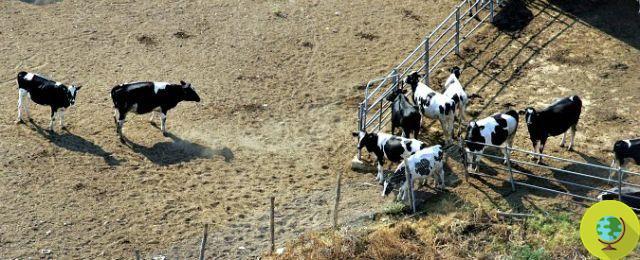
Cloning animals is not a taboo subject in China, where a Shenzhen plant now "churns out" 500 pigs every year. The company, run by a company called BGI, implants cloned embryos into two pigs every day. Clones and clones of clones are raised and used to test new drugs in a factory that operates next to a genetic sequencing processing plant
He is about to end up run over, his mother saves him
Cloning animals is not a taboo subject in China, where a plant in Shenzhen "churns out" 500 pigs every year. The company, run by a company called BGI, implants cloned embryos into two pigs every day. Clones and clones of clones are bred and used for testing new drugs in a factory that operates next to a genetic sequencing processing plant.
The services offered by BGI are the most extensive in the field of pig cloning, but their methods are less sophisticated than those of facilities in the rest of the world. Instead of using machines, BGI uses uniquely human workforce, employing a going assembly line from 30 to 50 workers to carry out the cloning by hand.
Newborn clones then continue to be implanted with cloned embryos once they have grown, perpetuating the process. Chinese researchers here have also started gene sequencing, creating litters of genetically modified pigs, with the DNA optimized to make them more susceptible to diseases such as Alzheimer's disease. The aim is to test on them, after making them sick, drugs that are supposed to treat the disease in humans.
BGI is not just interested in gene sequencing from pigs. The labs contain giant genetic sequencing machines that perform coding incessantly and for everything, from food to animals. With its 156 sequencers, it embodies the second largest genetic sequencing center in the world, the Wellcome Trust Sanger Institute, which boasts only 30 machines.
The next steps? BGI plans to sequencing the genome of a million people, a million animals and a million plants, under the pretense of developing better health care and tasty food. Ambitious goals for a company that serves modified products to its employees in the company canteen, to test improvements in meat, vegetables and even yogurt.
What about ethical risks and those for nature and biodiversity? BGI argues that all this "tinkering" is not intended to harm, but to provide food for the poor, better medicine and better food. But more than a paradise, the world he is building is a real nightmare.
Roberta Ragni
Photo and source
Read also:
Cloning: here is Pig 26, the GMO pig immune to disease


























